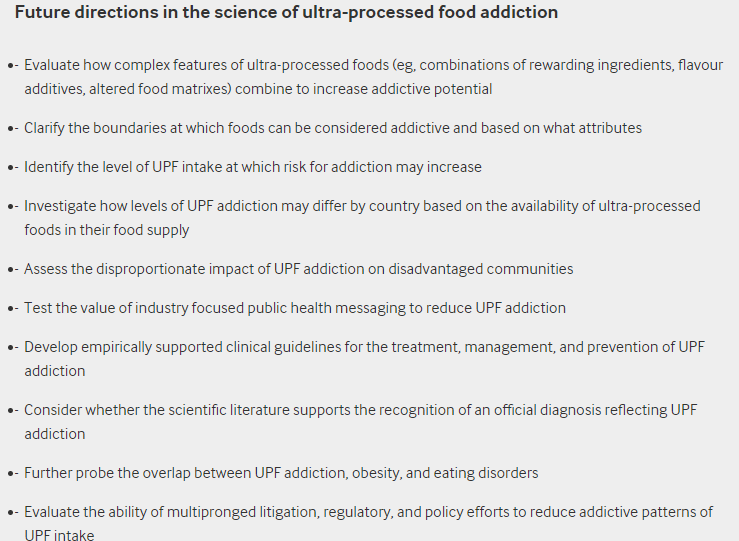Social, clinical, and policy implications of ultra-processed food addiction
BMJ 2023; 383 doi: https://doi.org/10.1136/bmj-2023-075354 (Published 09 October 2023)
The scientific understanding of addiction is evolving. Although addiction to certain foods is not included in diagnostic frameworks such as the Diagnostic and Statistical Manual of Mental Disorders (DSM-5), research on this topic has grown rapidly in the past 20 years. Much of this research uses the Yale Food Addiction Scale (YFAS), which was developed to measure food addiction by assessing DSM-5 criteria for substance use disorder in the context of food intake.
Yale Food Addiction Scale (YFAS)
-
The Yale Food Addiction Scale assesses all 11 symptom criteria for substance use disorder in DSM-5, including diminished control over intake, cravings, withdrawal, and continued use despite negative consequences
-
A substance use disorder is defined as the presence of two or more symptoms in the past year and clinically significant impairment or distress
-
The YFAS has undergone rigorous psychometric testing and has strong internal consistency and test-rest reliability, as well as convergent, discriminant, and incremental validity
-
It has been translated into over 12 languages, such as Spanish, Persian, and Chinese, and these versions also show strong psychometric properties
Read the entire research article in the BMJ by clicking here.

